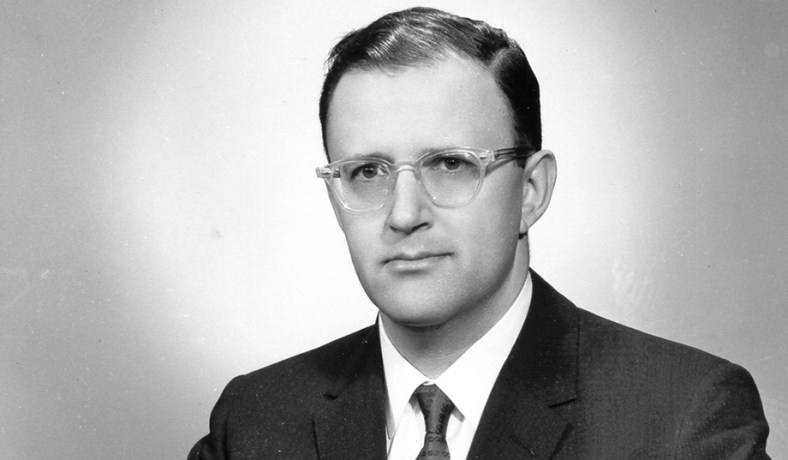Vitalist conservatism has more to offer than its critics let on.
Not Your Daddy’s Classical Liberalism

America once recognized the common—and highest—good.
“Boy, that escalated quickly.”
—Ron Burgundy
Bradley Thompson’s entertaining jeremiad—”The Rise and Fall of the Pajama-Boy Nietzscheans”—is a rhetorical masterpiece. But as an actual apology for classical liberalism and the philosophy of the American Founding, it left me with more confusion than clarity.
Does Classical Liberalism Create Pajama-Boy Nietzcheans?
Thompson writes: “The classical liberalism of the founding era assumed that individual rights to life, liberty, property, and the pursuit of happiness are grounded in nature and that government’s primary responsibility is to protect those rights. This meant that government must be impartial in adjudicating rival conceptions of the good life.”
Yet later in his essay, when he introduces us to the author Bronze Age Pervert (BAP), Thompson excoriates the Perv and his allies by drawing our attention to the inadequacies of their conception of the good life: “From their parents’ basement apartments, these kiddie reactionaries have been having lots of fun with all of their frog memes, code language, trolling, diets, Alpine hikes, moustaches, pseudonyms, and, best of all, their 175-pound bench presses.”
But because at some point in our recent history it became fashionable for both defenders and critics of classical liberalism to identify it with the idea that the “government must be impartial in adjudicating rival conceptions of the good life,” local communities no longer have the legislative power—as they did until roughly the mid-20th century—to provide the moral formation for these “kiddie reactionaries.”
Because the habits of some “Nietzscheanized right-wing nihilists,” as Thompson labels them, along with many other sub-groups these days, do not cultivate in the soul the proper conditions for freedom, individualism, and the pursuit of happiness, what results is not a free people who are capable of limited self-government and participating with moral integrity in a market economy, but rather, a mob of “independent” minds enslaved by their own unruly appetites.
It is clear that Thompson recognizes this. Otherwise, he would not lament the threat that this nihilistic movement poses to the future of American conservatism. But what he does not seem to realize is that others whom he excoriates, especially Patrick Deneen and Sohrab Ahmari, see the spiritual bankruptcy of BAP and his crew as just the sort of thing one should expect in a society in which the government must be “impartial in adjudicating rival conceptions of the good life.” This is, ironically, a position which they attribute to the classical liberalism that Thompson is claiming to defend!
To be sure, Deneen argues that this is a feature, not a bug, of classical liberalism—that the premises established at the American Founding were like seeds whose planters had no idea they would eventually develop into the expressive individualism and identity politics that dominate our present moment. But nothing Thompson says rebuts that notion.
Religion and the Common Good
Thompson claims that the classical ideas of the common good and the highest good are antithetical to the principles of the American Founding. He writes: “While it may be true that Ahmari’s notions of the ‘common good and the highest good are among the bedrock principles of classical and Christian philosophy,’ they are not a part of the American tradition unless you think John Winthrop’s puritan Massachusetts was reborn in 1776 and re-instituted in 1788.”
One could certainly raise a philosophical question as to whether the common good or the highest good, as understood by thinkers like St. Thomas Aquinas, can be appropriated by societies that have abandoned the metaphysical and epistemic assumptions that undergirded such ideas. But that is a far cry from claiming that all notions of the common and highest good are entirely absent from the American tradition, as Thompson claims.
For, as a matter of fact, they are not. As regards the highest good, the founders recognized that the natural human inclination toward a transcendent source of existence—as often moved by conscience—ought to receive special protection under our legal instruments.
As James Madison put it in his Memorial and Remonstrance: “It is the duty of every man to render to the Creator such homage and such only as he believes to be acceptable to him. This duty is precedent, both in order of time and in degree of obligation, to the claims of Civil Society.” The founders also acknowledged this highest good as the source of our natural rights, a view articulated most famously in the Declaration of Independence.
Some states, such as Massachusetts and Connecticut, recognized the highest good in their religious establishments. Although there was opposition to such measures, most notably from the likes of Madison and Thomas Jefferson, those who supported religious establishments were surely just as much a part of the American tradition as those who opposed them. In fact, the supporters thought these laws were perfectly consistent with religious liberty, since the laws did not coerce any individual citizen to join a church or profess a creed to which he could not assent.
These laws were often justified by appealing to the state’s interest in making sure its citizens were properly formed morally, since a virtuous citizenry advances the common good which helps secure the people’s happiness. They reasoned that there was no better way to accomplish this end than for the government to provide assistance to the church or churches that the free people of the community conscientiously believed was the appropriate source of divine guidance for this life in order to prepare one for the next.
In the Massachusetts case of Barnes v. Falmouth (1810), that was just the sort of reasoning employed by the state’s Supreme Judicial Court:
The object of a free civil government is the promotion and security of the happiness of the citizens. These effects cannot be produced, but by the knowledge and practice of our moral duties, which comprehend all the social and civil obligations of man to man, and of the citizen to the state. If the civil magistrate in any state could procure by his regulations a uniform practice of these duties, the government of that state would be perfect…the people of Massachusetts, in the frame of their government, adopted and patronized a religion, which, by its benign and energetic influences, might cooperate with human institutions, to promote and secure the happiness of the citizens, so far as might be consistent with the imperfections of man.
But the idea that there is such thing as the common good was not dependent on the state having an established church. It is a term explicitly mentioned in many state constitutions, such as Massachusetts, Pennsylvania, North Carolina, Connecticut, Rhode Island, Indiana, Nevada, Texas, Washington, Michigan, and Arizona. A particularly strong expression of it can be found in the Constitution of Massachusetts (1780): “The body politic is formed by a voluntary association of individuals; it is a social compact by which the whole people covenants with each citizen and each citizen with the whole people that all shall be governed by certain laws for the common good.”
I share Thompson’s affection for the founders and classical liberalism, as well as his loathing of the alt-Right nihilists. But because he refuses to concede any place at all for the common or the highest good in the American tradition, his case unwittingly confirms the very shortcomings of classical liberalism and the American Founding that are central to the critiques offered by Deneen and Ahmari.
The American Mind presents a range of perspectives. Views are writers’ own and do not necessarily represent those of The Claremont Institute.
The American Mind is a publication of the Claremont Institute, a non-profit 501(c)(3) organization, dedicated to restoring the principles of the American Founding to their rightful, preeminent authority in our national life. Interested in supporting our work? Gifts to the Claremont Institute are tax-deductible.
There there, Pepe—it’s gonna be O.K.
No perceptivity, no public-mindedness, no plan.
We are inclined, but not fated, to decadence.
On C. Bradley Thompson and Harry V. Jaffa.
The ineffectual truth of philosophy won’t save America.






